The Great War has largely faded from our national memory. The last doughboy “went west” in 2011 at the extraordinary age of 110, and this day, once set aside to commemorate the end of “the war to end all wars,” now honors not just those who served “over there” but those who served in all the subsequent conflicts that the Great War failed to prevent. Places like Chateau-Thierry and Belleau Wood are as shrouded in the mists of time as Gettysburg and Saratoga, and yet, of course, they were profoundly real to our grandparents’ generation. In the spirit of the day, and of that reality, it seems fitting to share the following reminiscence, written by my wife’s grandfather for a reunion of his regiment in 1938. At the time of the events described, Harry Bliss of Chestnut Hill, Massachusetts, was a 23-year-old Lieutenant in the 103rd Infantry holding the Allied line in northeastern France, somewhere between Saint-Milhiel and the Moselle River.
Harry’s story is his own, and there is little for me to add.
I received a Christmas card this year from old Bill Southard, our “barbed wire” Major, for whom I served so many months as Battalion scout and Intelligence officer. I have not seen or heard from him for years and his kind remembrance at this time set me thinking about the old days. It is amazing to realize that twenty years have passed and that, on next November 11th, a certain few of us will be having another reunion. We have had these dinners every five years, and each time, the stories get longer and more improbable. Although we were officers together so long with the same Battalion and knew to what degree we could believe one another, each reunion brings out some new tales that even time makes questionable. Of course, the specially prepared French dinner with plenty of “vin rouge” will get “the boys” exaggerating. I am writing all this down to see if I dare present it at the coming meeting without having all the dishes thrown at me. I can accuse old Bill’s Christmas card for setting me off on all of this because it was he who woke me up and ordered me out of the dugout to see what was going on just at daybreak on June 16, 1918.
We were at Xivray and the Germans pulled a raid on us with one of their traveling circuses. We managed to stop the 600 or more that came over at us, but in doing so both sides suffered a good many casualties. I won’t go into more details because they all know them and I shall only have a chair broken over my head. I must mention, however, that when I got out of our trench to go after some Germans that were trying to crawl back to their lines, I came on to six or eight of their dead hanging in our barbed wire. As it was part of my job to gather all intelligence relative to the enemy, I always had to pick the pockets of all their dead and cut off the shoulder straps which identified their regiments. I had so much of this poring over the dead that I often thought I might well be qualified to become an undertaker if everything else failed me (it might be a steadier business than the one I am in now). While I was leaning over to relieve one of these bodies of all its personal belongings, I saw a small gold ring lying in the grass a short distance off. I picked it up and noticed before I put it in my pocket that it had an “Iron Cross” engraved on it.
From that time on, I always carried the ring in my pocket and if I ever changed my uniform, I never failed to take my ring. Later on during the summer and autumn when we were continuously in all the offensives, I felt in my pocket to make sure the ring was still there. I have never been over superstitious before that time or since, but I had come out all right the day I found the ring and so I felt that I must not lose it or something might happen to me.
Sometime after the Armistice when I had returned home, I was given a book of poems and letters written by Alan Seeger, an American killed in the Foreign Legion. Several of his poems particularly appealed to me at that time, as his feelings and thoughts about it all were the same as mine. He expresses a fatalism which I seemed to have acquired and an idea that if something comes along with your name on it there is not much you can do about it. I have from time to time reread parts of his book and thought that after all doesn’t a little bit of all this philosophy still apply today. He says in one of his letters, “Here one has a wholesome notion of the unimportance of the individual. It needs an effort of imagination to conceive of its making any particular difference to anyone or anything if one goes under. So many better men have gone, and yet the world rolls on just the same.”1
Harry was undoubtedly familiar with Seeger, a Harvard graduate seven years his senior who had joined the French Foreign Legion at the outbreak of the war and was killed on the Somme in 1916. He is best known for his poem “I Have a Rendezvous with Death.”
The poem that I like the best is called “Maktoob,” and the coincidence is it is about a ring. Maybe I like to read it because I have story about a ring, but if I forget this part of it, I can make it into a code or way of conducting myself today. I attach a copy of this poem and I often wonder where the author’s ring is now. Mine is in a box in my wife’s bureau drawer. It has never been carried since I got out of my uniform and it never will be again.
Harry Bliss returned to Chestnut Hill and a career in the textile business. He married, raised a daughter and three sons, and died in Sherborn, Massachusetts, in 1977.
Maktoob A shell surprised our post one day And killed a comrade at my side. My heart was sick to see the way He suffered as he died. I dug about the place he fell, And found, no bigger than my thumb, A fragment of the splintered shell In warm aluminum. I melted it, and made a mould, And poured it in the opening, And worked it, when the cast was cold, Into a shapely ring. And when my ring was smooth and bright, Holding it on a rounded stick, For seal, I bade a Turco write Maktoob in Arabic. Maktoob! "Tis written!"...so they think, These children of the desert, who From its immense expanses drink Some of its grandeur too. Within the book of Destiny, Whose leaves are time, whose cover, space, The day when you shall cease to be, The hour, the mode, the place, Are marked, they say; and you shall not By taking thought or using wit Alter that certain fate one jot, Postpone or conjure it. Learn to drive fear, then, from your heart. If you must perish, know, O man, 'Tis an inevitable part Of the predestined plan. And, seeing that through the ebon door Only once you may pass, and meet Of those that have gone through before The mighty, the elite - Guard that not bowed nor blanched with fear You enter, but serene, erect, As you would wish most to appear To those you most respect. So die as though your funeral Ushered you through the doors that led Into a stately banquet hall Where heroes banqueted; And it shall all depend therein Whether you come as slave or lord, If they acclaim you as their kin Or spurn you from their board. So when the order comes: "Attack!" And the assaulting wave deploys, And the heart trembles to look back On life and all its joys; Or in a ditch that they seem near To find, and round your shallow trough Drop the big shells that you can hear Coming a half mile off; When, not to hear, some try to talk, And some to clean their guns, or sing, And some dig deeper in the chalk - I look upon my ring: And nerves relax that were most tense, And Death comes whistling down unheard, As I consider all the sense Held in that mystic word. And it brings, quieting like balm My heart whose flutterings have ceased, The resignation and the calm And wisdomof the East. - Alan Seeger
Alan Seeger, Poems (New York: Charles Scribner’s Sons, 1916) 141.

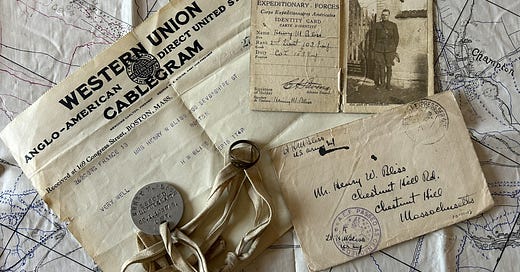



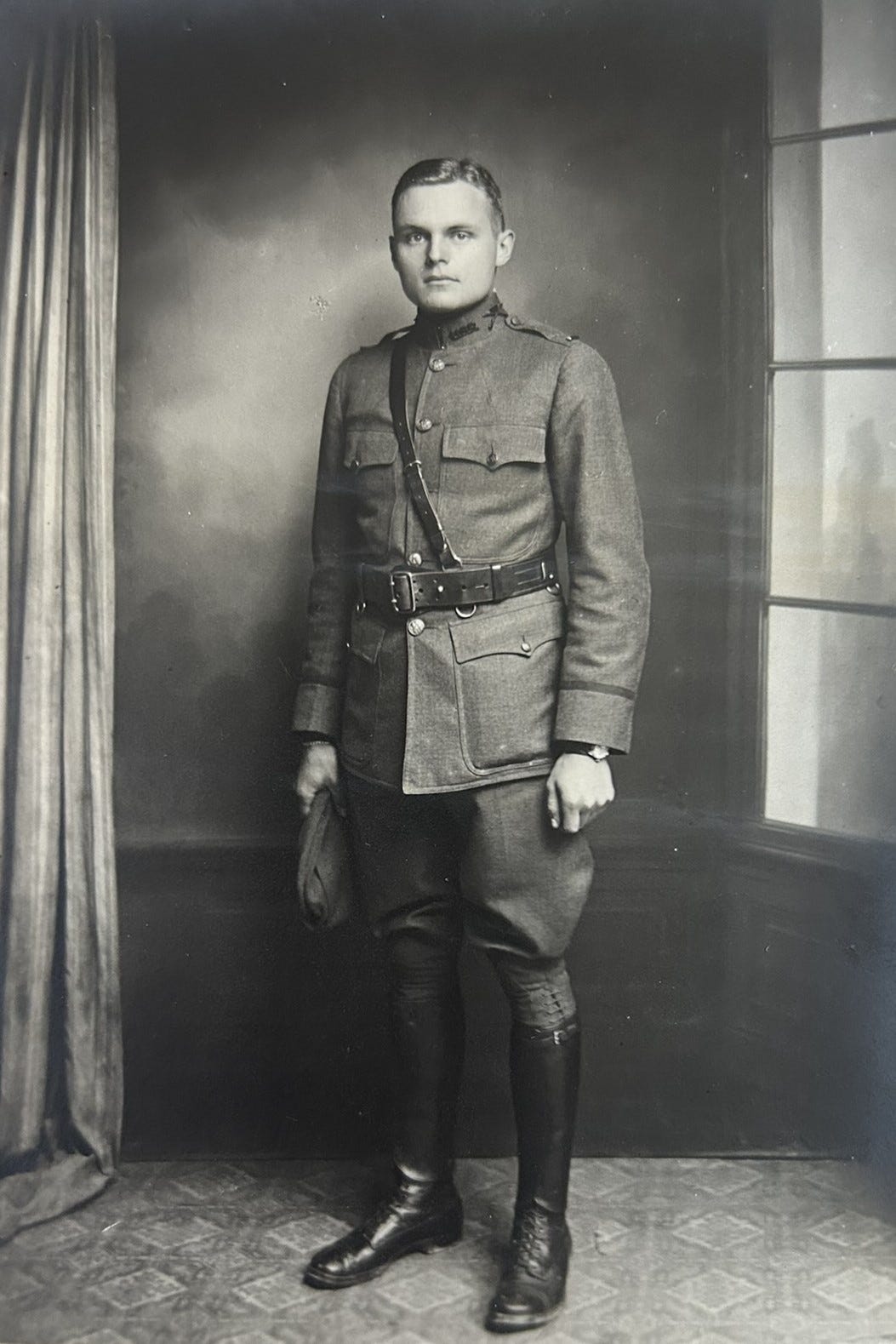
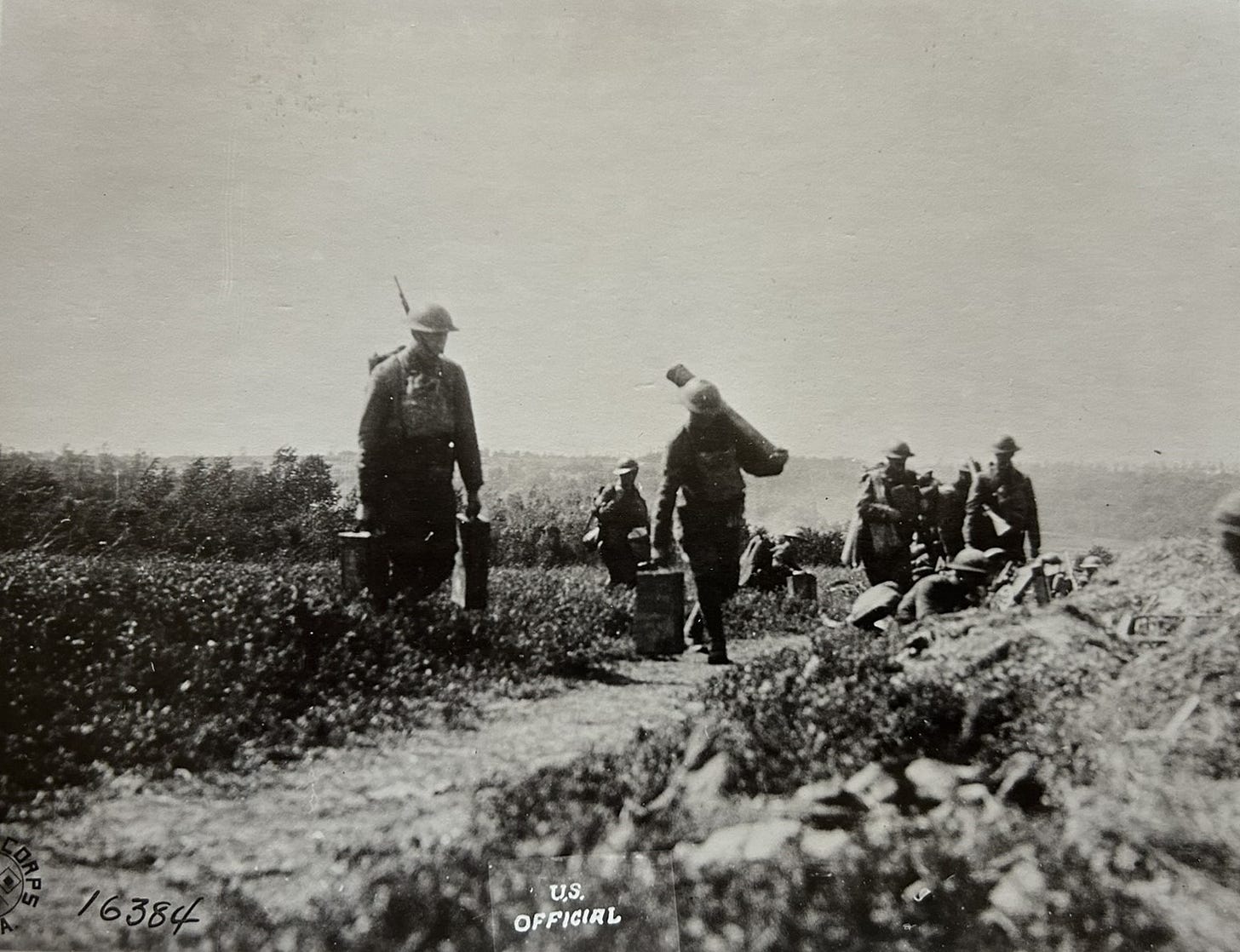
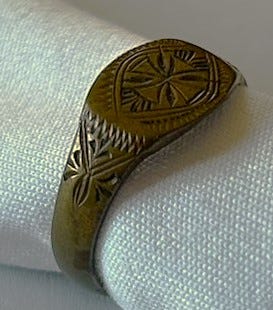
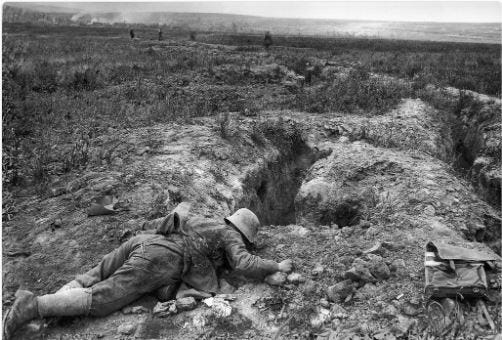
A moving tribute and a wonderful poem. Thanks!